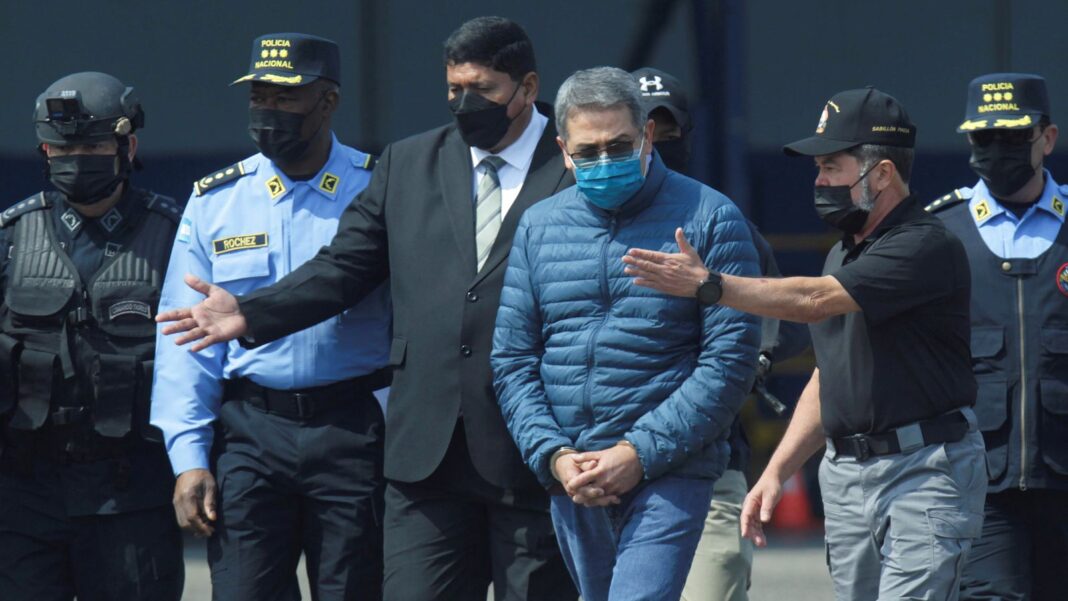Former Honduran president Juan Orlando Hernandez has been sentenced to 45 years in a US prison over charges he enabled drug traffickers to use his military and national police force to help get tonnes of cocaine over the border.
Hernandez was also fined $8m (£6.3m) by a federal court in Manhattan, New York, following a trial which saw him accused by traffickers of protecting some of the world’s most powerful cocaine dealers.
The traffickers, who admitted responsibility for dozens of murders, said he protected the likes of Mexican drug lord Joaquin “El Chapo” Guzman, who is serving a life prison term in the US.
A jury convicted Hernandez, 55, in March after a two-week trial, which was closely followed in his home country.
“I am innocent,” he said at his sentencing. “I was wrongly and unjustly accused.”
Read more:
Honduras president ‘helped export cocaine to US’ – prosecutors
Family ‘distraught’ after death of four-year-old boy
The sentencing judge P Kevin Castel called Hernandez a “two-faced politician hungry for power”, who protected a select group of traffickers.
US prosecutors say Hernandez worked with drug traffickers as long ago as 2004, taking millions of dollars in bribes as he rose from rural congressman to president of the National Congress and then to the country’s highest office.
His brother, Juan Antonio “Tony” Hernandez, a former Honduran congressman, was sentenced to life in a US prison in 2021 for his own conviction on drug charges.
Hernandez said he was being persecuted by politicians and drug traffickers. Pic: Reuters
Juan Orlando Hernandez served two terms as the leader of the central American nation of roughly 10 million people.
He was arrested at his home in Tegucigalpa, the Honduran capital, three months after leaving office in 2022 and was extradited to the US in April that year.

Keep up with all the latest news from the UK and around the world by following Sky News
Hernandez acknowledged in trial testimony that drug money was paid to virtually all political parties in Honduras, but he
denied accepting bribes himself.
He insisted in a lengthy statement made through an interpreter that his trial was unjust because he was not allowed to include evidence that would have caused the jury to find him not guilty.
He said he was being persecuted by politicians and drug traffickers.
“It’s as if I had been thrown into a deep river with my hands bound,” he said.







